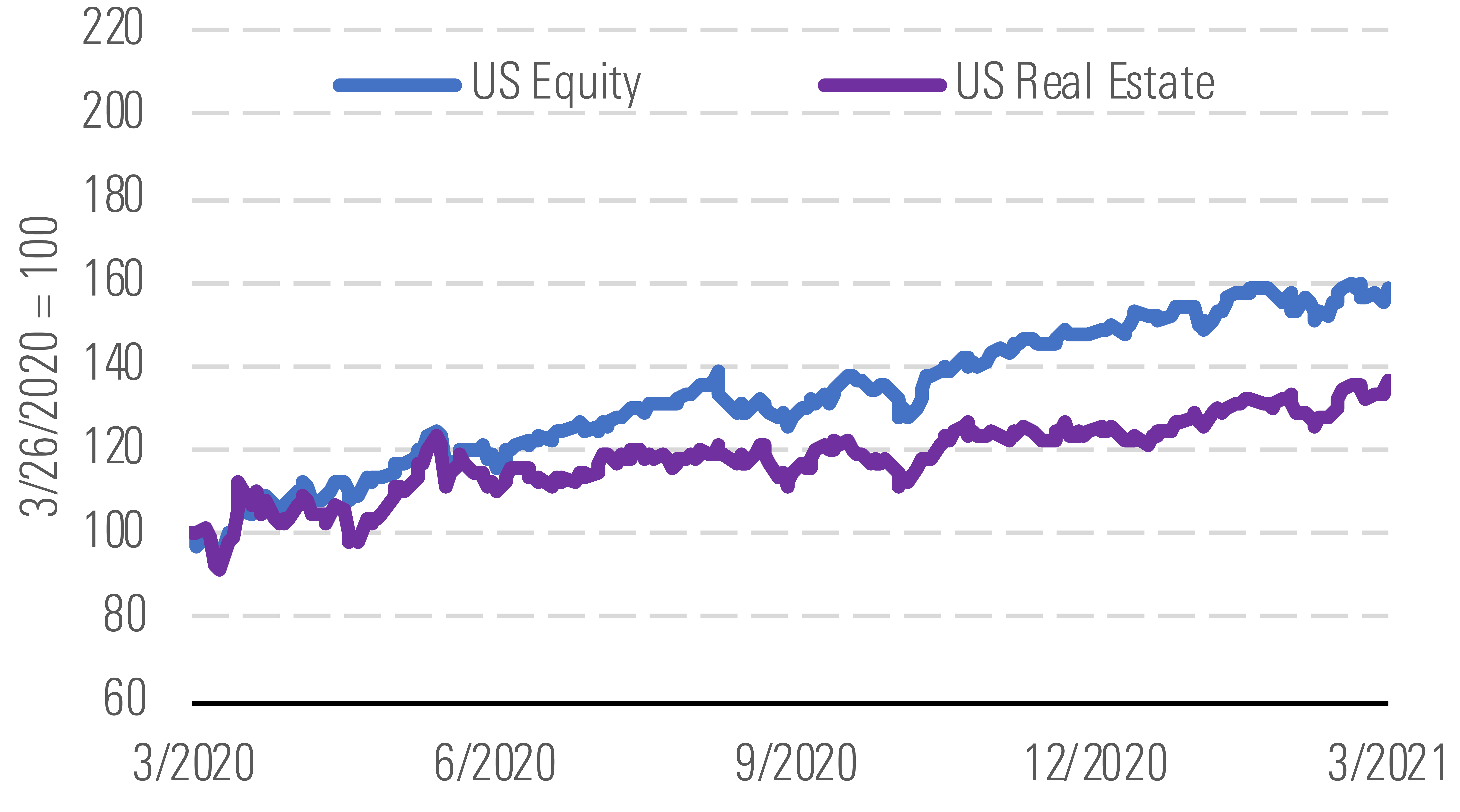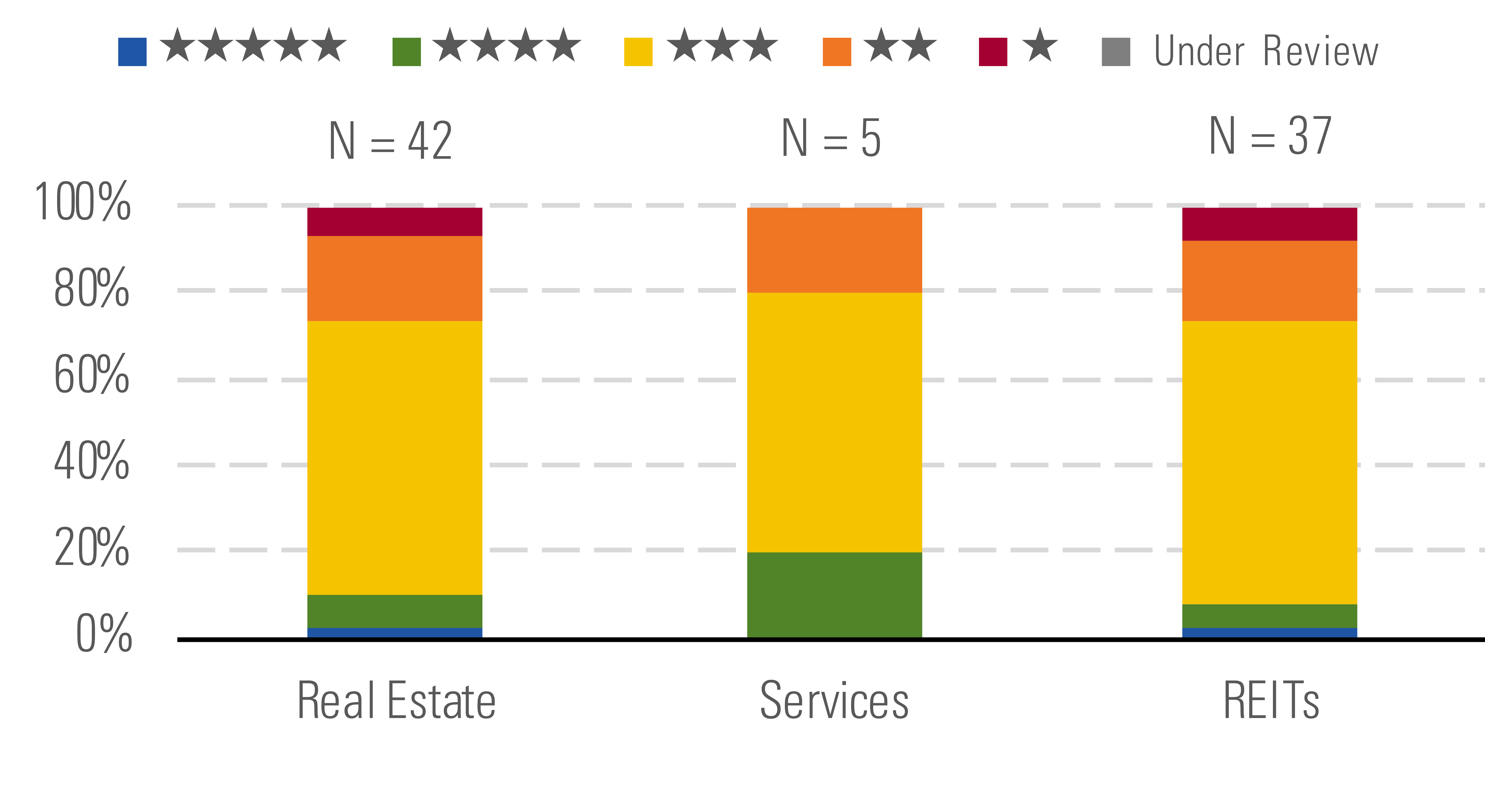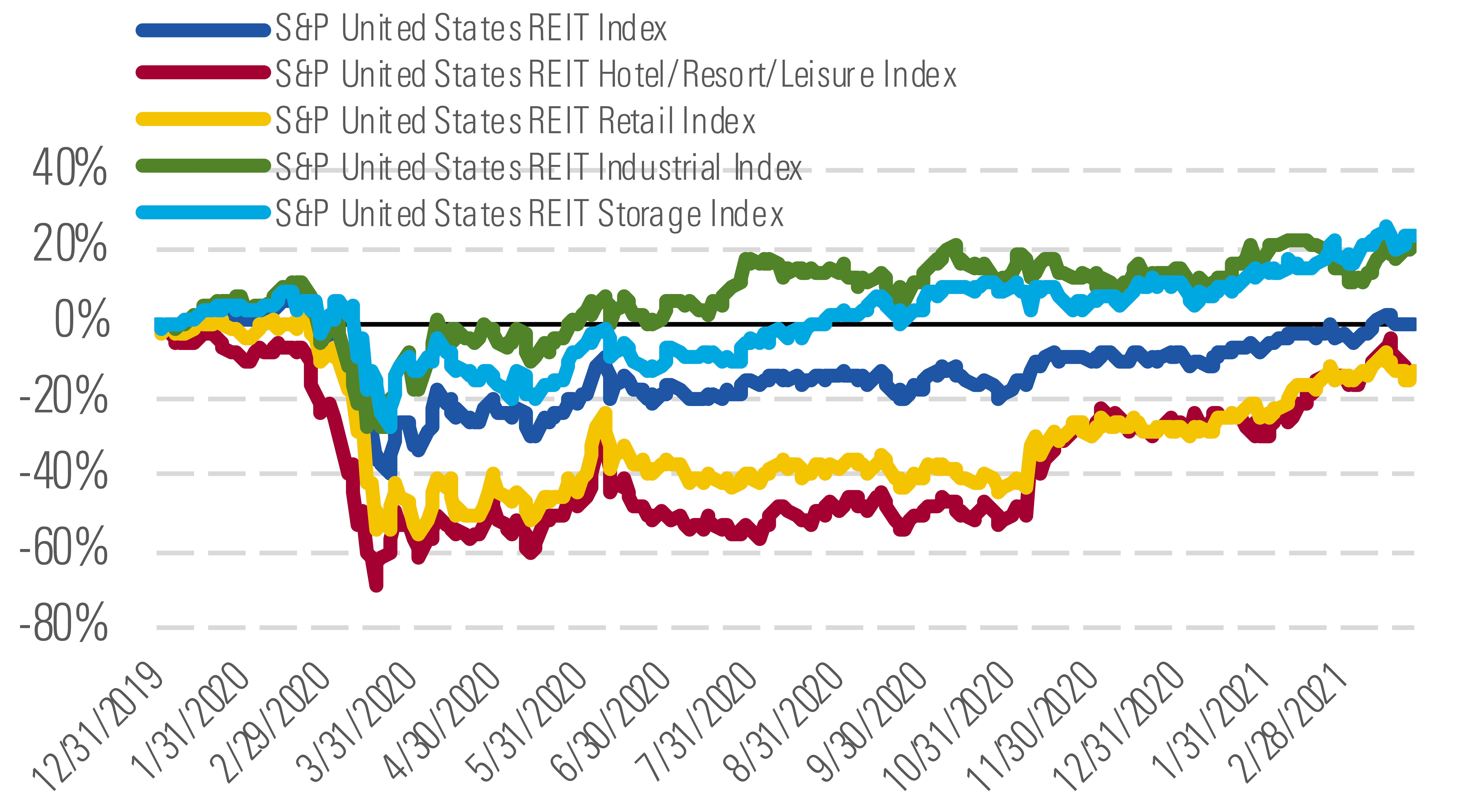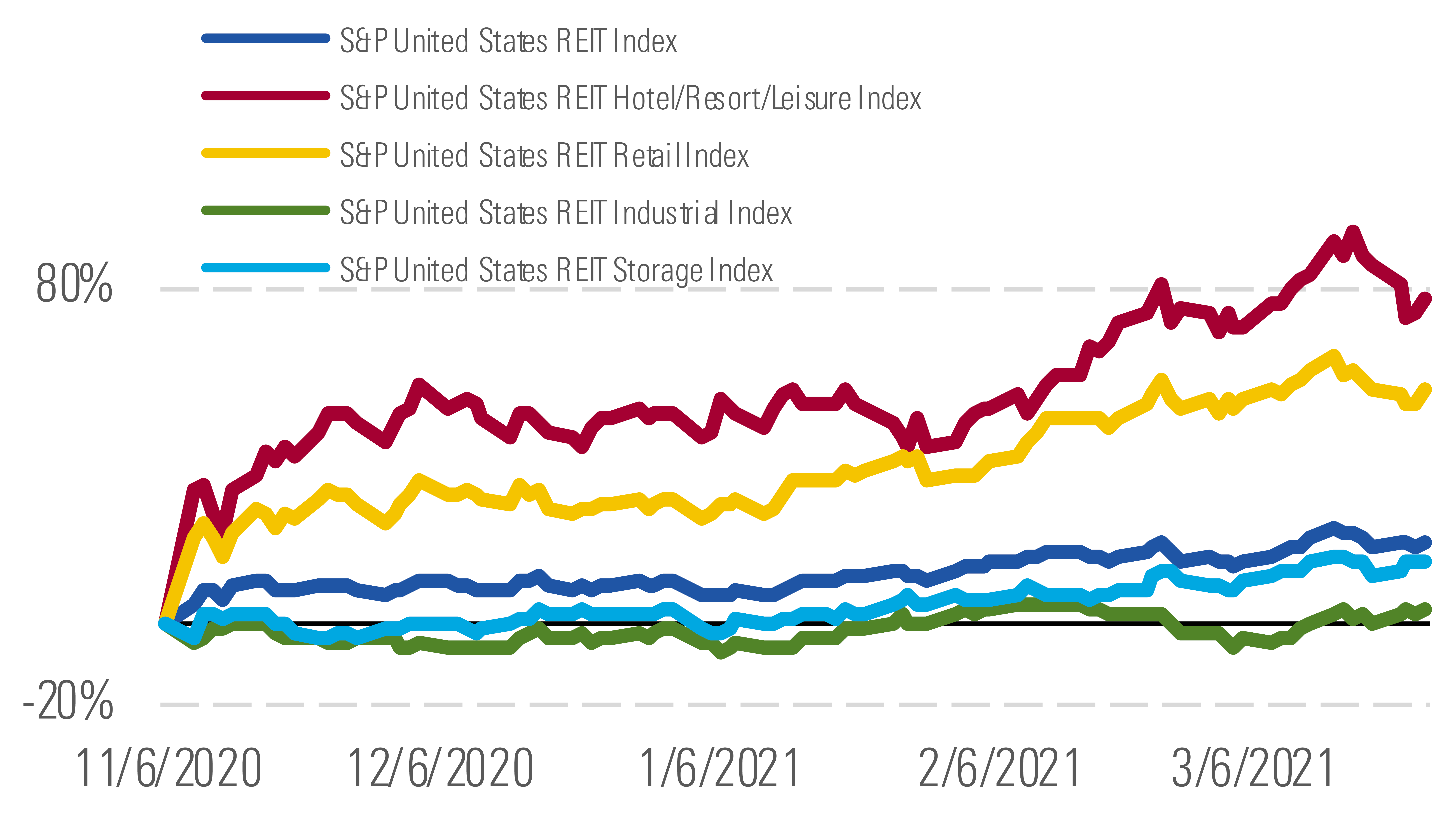Vaccine Rollout a Big Boost for Hotels and Retail Real Estate
Sector trades at a 4% premium to our fair value estimates.
The Morningstar US Real Estate Index is up 36.8% over the trailing 12 month, well below the 58.4% of the broader U.S. equity market over the same period. However, there's significant divergence in real estate performance by subsector.

Real estate has not recovered as much as the US Equity Index - source: Morningstar
The real estate sector is currently trading in line with our fair value estimates. Our coverage currently trades at a 4% premium to our estimate of fair value compared with our total coverage trading at an 8% premium to our fair value estimates on average at the end of the first quarter. Currently, 64% of the real estate sector is trading in 3-star range, while only 9% of our real estate coverage is trading in 5- or 4-star range.

3-star companies currently represent more than half of the sector - source: Morningstar
We have seen significant bifurcation in the performance of the different real estate subsectors. Total returns have been significantly worse in sectors that are more sensitive to the coronavirus since the start of 2020.

Real estate subsectors most affected by the virus have underperformed - source: Morningstar
Global travel restrictions and consumers canceling vacation plans have caused massive occupancy declines for the hotel industry. Malls across the country were closed for several months, and many retailers are struggling as consumers have shifted many of their shopping habits online. And though the industrial and self-storage sectors declined initially, they have outperformed the broader real estate sector since the start of 2020. These sectors are outperforming, as they should be relatively insulated from the worst effects of the virus on the global economy.

Hard-hit subsectors have outperformed since the vaccine announcement - source: Morningstar
However, after the announcement of a successful development of a coronavirus vaccine in early November, the hotel and retail sectors have massively outperformed the broader real estate market. The vaccine allows travelers to return to hotels and shoppers to return to stores, significantly reducing the risk of bankruptcy for these companies and making the path to recovery clearer. Both sectors' operating results were negative in the fourth quarter of 2020, and the pandemic will likely continue to affect their fundamentals through the summer. Still, we believe that once the vaccine is fully rolled out in the U.S., the hotel and mall sectors will have years of strong growth ahead of them. We currently see some value picks for investors among these hardest-hit subsectors, though the recent rally has significantly reduced the discounts for these names.
Top Picks
Simon Property Group SPG Star Rating: ★★★★ Economic Moat Rating: None Fair Value Estimate: $151 Fair Value Uncertainty: High
Class A malls continue to outperform other forms of brick-and-mortar retail. The stock has sold off significantly over the past few months as fears of the coronavirus impact on brick-and-mortar retail sales grew among investors. Simon has long-term leases with tenants, so they should continue to receive rent even during the current crisis. While many weaker retailers may go bankrupt due to the lack of sales, we think Simon's attractive portfolio will be able to quickly fill any vacancies. Additionally, Simon recently acquired Class A mall competitor Taubman Centers, which should increase cash flows and provide more leverage when negotiating with tenants.
Regency Centers REG Star Rating: ★★★ Economic Moat Rating: None Fair Value Estimate: $61 Fair Value Uncertainty: Medium
Regency's portfolio is filled with high-quality assets in population-dense, affluent markets. The company focuses on owning grocery-anchored centers, with over 80% of properties featuring a grocery anchor and grocery stores representing slightly more than 20% of annual base rent. Regency's grocery anchors are strong draws to the centers, as they produce sales per square foot well above the national average and are very healthy, with low occupancy costs. Grocery has been one of the retail categories that has seen sales growth increase during the pandemic, driving consistent business to the rest of Regency's portfolio, which should maintain high occupancies.
Ventas VTR Star Rating: ★★★ Economic Moat Rating: None Fair Value Estimate: $59 Fair Value Uncertainty: Medium
Ventas owns high-quality assets in the senior housing, medical office, and life science fields. While the company's medical office and life science portfolios should be relatively unaffected by the coronavirus outbreak, the senior housing portfolio is likely to experience a very significant impact to occupancies as the virus has the highest lethality rate among senior citizens. However, while virus will continue to negatively affect net operating income in 2021, the industry should see strong long-term growth from the coming demographic wave of baby boomers aging into senior housing facilities.

/s3.amazonaws.com/arc-authors/morningstar/b9459b20-3908-4448-a36c-b728946ddbe5.jpg)
/cloudfront-us-east-1.images.arcpublishing.com/morningstar/54RIEB5NTVG73FNGCTH6TGQMWU.png)
/cloudfront-us-east-1.images.arcpublishing.com/morningstar/ZYJVMA34ANHZZDT5KOPPUVFLPE.png)
/cloudfront-us-east-1.images.arcpublishing.com/morningstar/MNPB4CP64NCNLA3MTELE3ISLRY.jpg)
:quality(80)/s3.amazonaws.com/arc-authors/morningstar/b9459b20-3908-4448-a36c-b728946ddbe5.jpg)